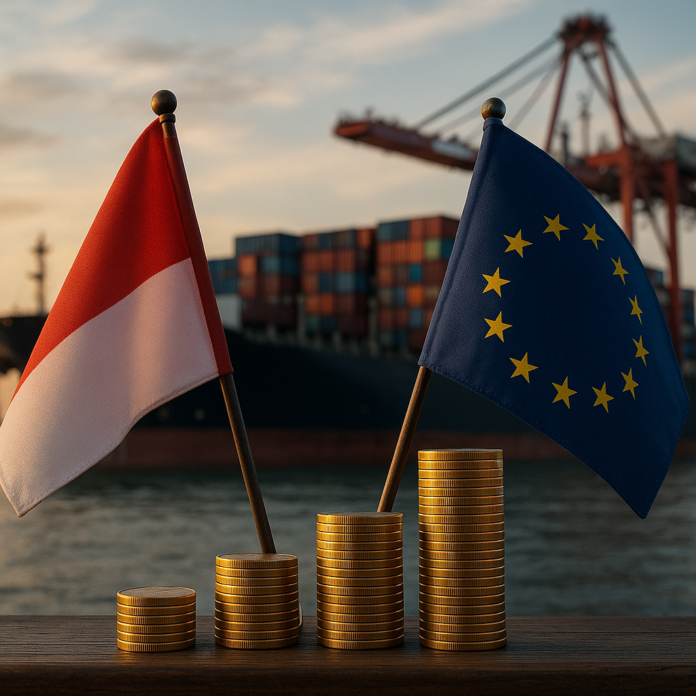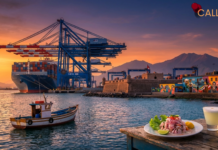
Indonesia and the European Union finalized their comprehensive economic partnership agreement negotiations on Tuesday after nine years of discussions, according to Reuters.
The agreement will eliminate import duties on 98.5% of EU goods exported to Indonesia and streamline entry procedures for EU products including automobiles and food items such as milk powder, cheeses, meats, chocolates, and bakery products, according to the EU.
For the EU, the deal will generate savings of $707.40 million in duties averaging 10% annually on EU exports.
Indonesian goods will benefit from zero tariffs in 90% of the EU market upon implementation, the Indonesian economic ministry stated, which should enhance shipments of palm oil, coffee, textiles and clothing, and other products.
Indonesia’s Coordinating Minister for Economic Affairs Airlangga Hartarto indicated he aims for the pact to take effect on January 1, 2027.
Trade between Indonesia and the EU is anticipated to double during the first five years of implementation, Indonesia reported. In 2024, bilateral trade reached $30.1 billion, according to Indonesia’s economic ministry.
Indonesia is conducting discussions with European automakers regarding partnerships in battery and electric vehicle production in the Southeast Asian country, Airlangga informed reporters.
EU Trade Commissioner Maros Sefcovic stated in Bali that the agreement would strengthen European company investment in Indonesia and help diversify supply chains, particularly for critical minerals, which Indonesia possesses abundantly.
In a separate statement, European Commission President Ursula von der Leyen indicated the agreement would help provide “a stable and predictable supply of critical minerals, notably nickel and cobalt.”
The Chairman of the Indonesian Palm Oil Association Eddy Martono noted the deal would remove tariff barriers to the EU, a major palm oil purchaser.
However, non-tariff barriers, including the EU Deforestation Regulation (EUDR), remain an obstacle for the industry, he mentioned in a text message to Reuters.
Indonesia represents the world’s largest palm oil producer, and the EUDR requires growers to provide documentation proving shipments did not originate from areas deforested after 2020.
There remains work to be completed, specifically the EUDR which must be resolved immediately because it will be implemented later this year, he stated, which could diminish the trade agreement’s effectiveness.
This agreement represents a significant milestone in EU-Indonesia economic relations, establishing a framework that addresses both traditional trade barriers through tariff elimination and modern concerns about sustainable supply chains.
Understanding this deal requires recognizing how it balances immediate economic benefits with longer-term environmental considerations, particularly regarding Indonesia’s palm oil industry and the EU’s deforestation regulations.




